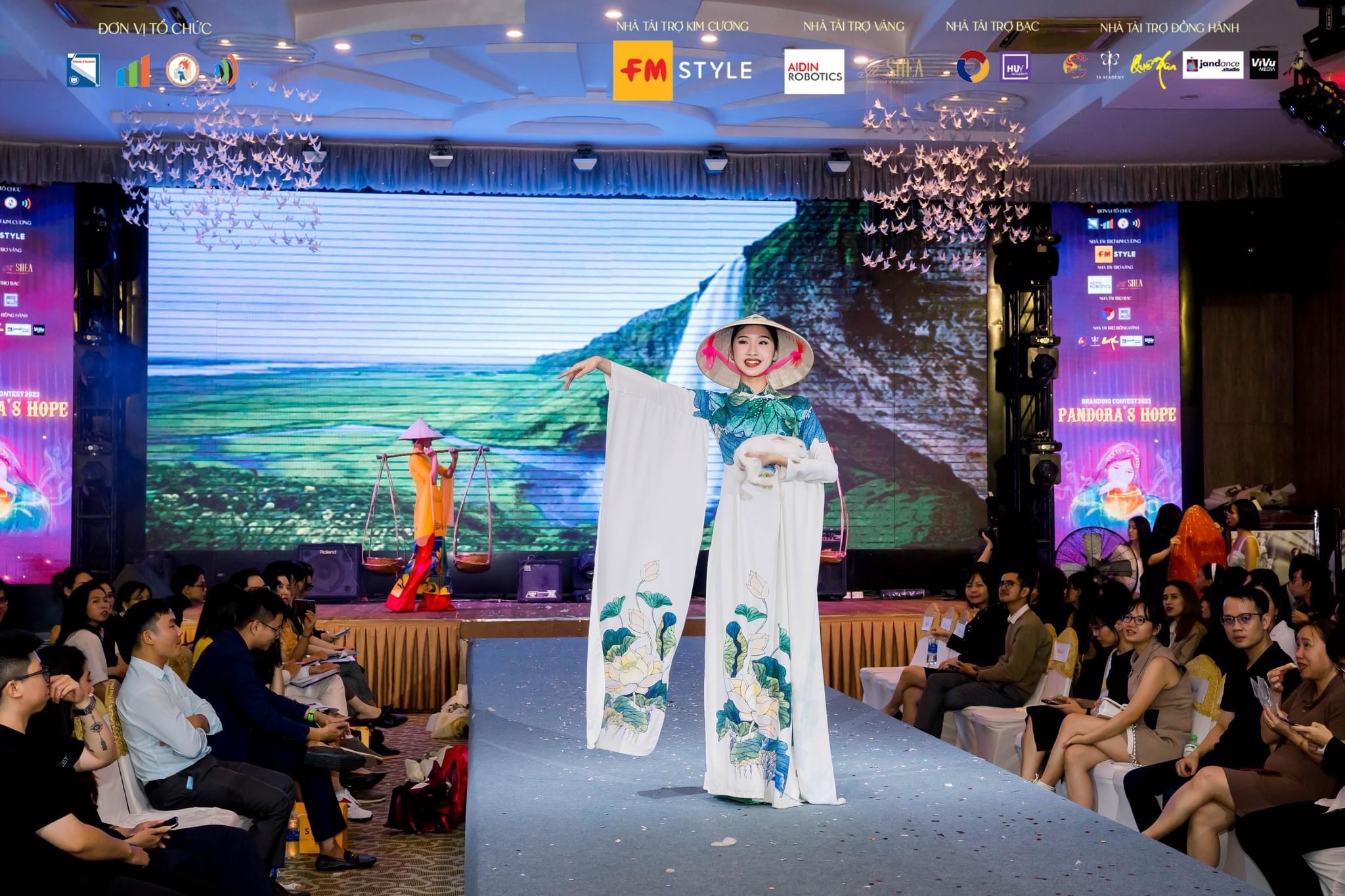Learning based on real work is good trend
The increasing demands of the labour market is pushing schools to increase students' access to reality and proactively prepare necessary skills to meet the recruitment needs of businesses.
 |
| Students of the Marketing Department, the Da Nang University of Economics have applied the knowledge they have learned at the Branding Contest. Photo: NGOC HA |
Effectiveness from real-life learning
Recently, students of the Marketing Faculty of the University of Economics, a member school of the University of Da Nang (UD), applied the knowledge they had learned into the Branding Contest. To participate in the contest, 18 groups of students from the faculty had to start with market research to identify opportunities and capture customer needs to build a suitable brand identity.
The Branding Contest is an extracurricular activity integrated into the main programme of the Brand Management module through highly-practical projects. The idea comes from the original idea of Assoc.Prof.Dr. Pham Thi Lan Huong, the former Dean of Marketing Faculty. This is a competitive show, highly associated with projects under which students can maximize their creativity capacity and develop their own fashion brands.
Thanks to his seasoned experience in business cooperation, Ph.D Truong Thi Van Anh, the Head of Marketing Department, Faculty of Marketing, University of Economics, has inherited and renewed the original Fashion & Branding into a race between brands with sponsorship from businesses both in human and material resources.
Associated with the art-based learning method, Branding Contest poses new challenges for learners through the application of performing art forms such as musicals and fashion shows in order to maximize the visual stimulation of the audience.
The courses that apply knowledge in practice are enthusiastically responded by students. Phan Thi Hong Huong, a fourth-year student, the Faculty of Marketing, the University of Economics, said that with experiential courses organised by the faculty, students have the opportunity to work with famous domestic and foreign enterprises. For example, at the Branding Contest, Huong and her teammates learned many marketing skills through the the help of experts from S. Korea-based AIDIN Robotics Company.
Only when regularly working and interacting with businesses can students gradually gain sensitivity and sophistication in grasping the needs of customers. This is an essential element of marketing students when they graduate from school and seek jabs.
Likewise, Huynh Van Vu, a third-year student, majoring in electrical and electronic engineering technology, the University of Education and Technology, a member school of UD, said that employers are very interested in the fact that graduates will apply their academic knowledge about how to put it into practice. Therefore, the practical course is quite important, equipping students with necessary skills to meet the needs of future jobs.
Graduation thesis must act as a practical product
“In addition to the brand management course, the Marketing Faculty also organises experiential courses through practical playgrounds such as Integrated Marketing Communication (Making Communication module), Music Marketing (Advertising module), Exhibition on New Products (Product Management module), Poster Exhibition (Marketing Research module). Since then, students are equipped with necessary knowledge and skills and they can easily approach work trends in the future”, Ph.D Truong Thi Van Anh shared.
The orientation towards training students associated with actual employment in the future is of interest to universities. Ph.D Truong Thi Hoa, the Head of Electrical Systems Department, Faculty of Electrical and Electronics Engineering, the Da Nang University of Education and Technology said, for example, with general practice modules and installation practice modules, electrical cabinets in particular, students majoring in Power Supply Systems can design and complete the installation for a distribution panel in industry in accordance with current standards.
This is a highly-practical course that plays a key role as a way of connecting theory with practice. With such practical subjects, students are trained in line with the needs of employers, and especially, they are equipped with skills that are close to industry reality. Many alumni assess that this change in training approach has helped students to be less surprised when entering the labour market.
According to Ph.D Le Phuoc Cuu Long, Vice Dean in charge of the Department of Digital Economy andE-commerce, Viet Nam - Korea Universityof Information and Communication Technology, also a member school of DU, all training programmes for professionals The department's majors are designed according to levels: career awareness (Year 1), career access (Year 2), practice professional skills (Year 3), professional internship (Year 4).
Over the years, the experience in each job will be increased to ensure that students can best practice. In order to increase the practicality for each major, module, periodically, the faculty organises activities for students to apply knowledge into practice such as organizing talk shows, visiting businesses year by year, inviting experts from enterprises to guide the students in developing startup projects, designing many modules with the requirement that students must have actual products.
“Learning based on real work is extremely necessary for training today, especially for students in the business and management sectors because the business environment changes very quickly over times. In order to help students in terms of their future career orientations, the graduate product of the student is not a thesis but it will be towards a product ordered from the enterprise itself. In parallel with that, the school will head towards the graduation thesis evaluation committee with 100% of the members come from businesses”, said Ph.D. Le Phuoc Cuu Long.
Reporting by NGOC HA – Translating by A.THU








